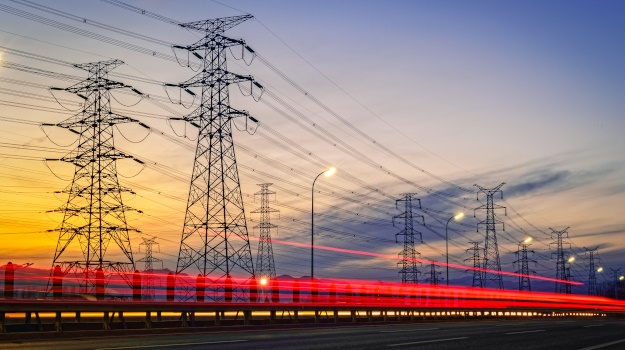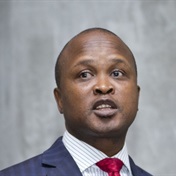
The privatisation of Eskom without a clearly formulated energy policy will be just as disastrous as the continuation of public bailouts for Eskom, writes Ralph Mathekga.
Once upon a time it made sense for the state to create gigantic monopolies with the sole of purpose of regulating what was considered critical services in society. This applied to sectors such as energy, transport, rail, and communications in some societies.
The main reason for this type of development trajectory was the idea that those sectors are so important that the services they provide should be available to every citizen irrespective of the markets. Those are critical areas of life are considered matters of "national security" and the sectors therefore had to be protected from competition in the markets.
READ: Why South Africa's latest plan for Eskom could work
This is how we ended up with creations such as Eskom, SAA, PIC and others. These are South Africa's well-known state-owned entities that were established on the basis of protecting society from the markets.
As a nation, we fell in love with the enticing idea that the state must own entities such as Eskom; a company whose reach in South Africa's energy sector literally defines the sector. When Eskom sneezes, South Africa catches a cold!
Electricity is a reality. I write this piece using a battery power source, connected to a small inverter that's making an irritating noise like an electric hair clipper. How did we get to this point where a few gigantic state-owned companies have been allowed to define key sectors in society, ultimately holding us all ransom by infiltrating policy machinery?
Credit where credit is due
The original intention to create entities such as Eskom was a necessary task to be undertaken by the state. The private sector is never keen to provide initial greenfield investment in risky capital-intensive sectors such as electricity supply.
I imagine that when Eskom was created, the idea that the population will in the future mushroom and create a high demand for energy was also not in the minds of those who saw the need for electricity. Building an energy supply company would have been risky and not profitable from the beginning.
Building Eskom must have been an idea initiated from the basic human need for power, and not profit. However, it is now known that energy production can be a very profitable business. Credit goes to Eskom that we can see the positive impact that electricity can bear upon society, creating newer energy demands in society.
Electricity generation creates jobs. Electricity distribution creates jobs. Electricity sales bring profit. But now that the energy sector is created as it is and largely by Eskom, the question is do we need to maintain Eskom in its current form? My answer is simple: not necessarily!
To put it otherwise, is it true that Eskom is better off functioning based on decisions made by politicians than being subjected to the logic of open markets? If we say that Eskom should remain as it is simply because it was created that way, we are then saying that our energy demands as a society have not changed since Eskom was created.
SA is a changing country
Despite historical problems that linger, South Africa is a rapidly changing society resulting in changes in energy demands. This makes Eskom a horse for which South Africa keeps on insisting it needs a new engine to pull an advanced carriage.
It won't work because it was never meant to work up to point. There is a limit to how much power one can get from a living horse. The system upon which Eskom was built was not meant to transition into the current society in which we live.
Eskom should have been privatised back under the apartheid system. Failure by the apartheid government to privatise it and reform the energy sector is an indication that the system tolerated inefficiencies so long as it sustained the dominant interest groups and some political elites.
The problem we are now experiencing with Eskom is that it is now our beloved monster that was once our industrial bundle of joy – the creation that came from our dream to create an industrial society.
However, we have to realise that our creation is now far behind our current dreams. It served a purpose to drive the industrialisation of South Africa by supplying affordable and at times cheap electricity. The mission has been accomplished and we should change strategy regarding how Eskom is constituted and how it relates to society and the energy sector.
It's a tough task, and tempers across the nation are running high about this and other matters. As a nation, we do not trust each other to arrive at a generally acceptable solution for Eskom. Privatisation is a swear word.
From this sprouts the big moral dilemma: which private entities get to attain a piece of Eskom and at what price?
Eskom is an asset in which South Africans have invested dearly over the years. Some have paid Eskom with their tax money. Others have contributed to Eskom by providing cheap labour simply because they were exploited based on their race. Everyone has paid for Eskom. This is the reason why some oppose privatisation of Eskom because they correctly believe it belongs to the people.
'Privatisation is theft'
The Irvin Jims of this world believe that Eskom privatisation is an attempt by private sector aligned politicians to steal the most valuable state assets. Thus, efforts to capture the state. Given the rampant corruption and loss of legitimacy by political leaders, who can trust that the state will sell Eskom at a fair value?
Who can believe that those who buy Eskom will commit to the principle of open competition to the benefit of the consumers? The EFF will never agree to the idea of a fair privatisation of Eskom. For the EFF, privatisation is theft. Simple.
The choices that are presented to South Africans on Eskom are grim. One option is to maintain Eskom as it is simply because we have done so in the past. This is a failure to acknowledge that we are not our past: we are our future.
The other option is for us to hastily proceed with the privatisation of Eskom with the sole purpose of relieving the taxpayers from the responsibility of bailing out the company. This solution ignores the fact that selling Eskom cheap to a few politically connected individuals is still unjust, even if that relieves taxpayer from having to bail out Eskom.
The taxpayer needs relief, but also requires returns and a well-regulated energy sector through which there is energy security. The privatisation of Eskom without a clearly formulated energy policy will be just as disastrous as the continuation of public bailouts for Eskom.
When it comes to Eskom, failure to do something is bad news whilst doing anything hastily is a guarantee for long term problems. Failure to reflect deeply and genuinely about Eskom is a step away from energy security.
- Ralph Mathekga is a senior researcher at UWC's Centre for Humanities Research, and author of When Zuma Goes and Ramaphosa's Turn.
Disclaimer: News24 encourages freedom of speech and the expression of diverse views. The views of columnists published on News24 are therefore their own and do not necessarily represent the views of News24.




 Publications
Publications
 Partners
Partners























